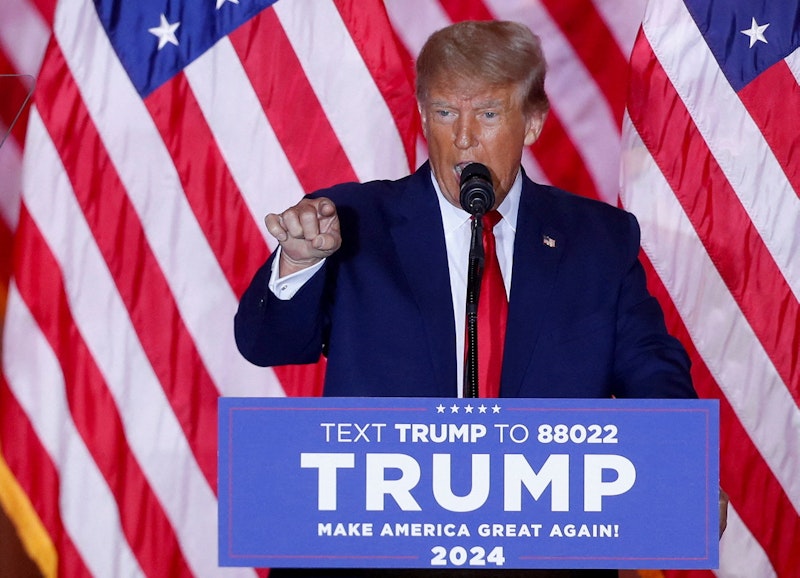The external enemies of democratic societies often have an advantage of time. As they don’t have their own elections to worry about, and can long suppress adverse public opinion among those they rule, dictatorial regimes can watch and wait for signs of weakness and moments of opportunity in the countries that they target or that stand in the way of their ambitions.
This is evidently what happened in the months preceding Hamas’ Oct. 7 invasion of Israel. Israeli military intelligence repeatedly warned Prime Minister Benjamin Netanyahu that the dangers of an attack were increasing as Hamas and Hezbollah observed intense divisions in Israeli society over efforts by the governing coalition to sharply reduce powers of Israel’s Supreme Court. Such divisions, along with the goal, prioritized by Iran, of derailing a prospective diplomatic accord between Israel and Saudi Arabia, go a long way in explaining why Hamas undertook a massive attack when it did.
Hostile regimes will be no less astute in analyzing internal political dynamics of the United States. At present, Russia has an incentive to delay negotiating an end to its war in Ukraine, on the possibility that Donald Trump will be re-elected and, as promised, seek to settle the conflict in “24 hours”; such a pretension suggests a second Trump administration would withhold aid, as Trump did prior to his first impeachment, and so force Ukraine to accept territorial concessions and other terms favorable to Russia.
Much attention has lately been paid to Trump’s promises for a second term marked by sweeping autocratic measures focused on domestic political enemies and undesirables. These include massive detentions and deportations of unauthorized immigrants; a transformation of the federal civil service into one dominated by partisan loyalists, with law enforcement agencies tasked with “going after” the President’s opponents; and a general crackdown on people deemed “vermin.” “The threat from outside forces is far less sinister, dangerous and grave than the threat from within,” Trump said on Veterans Day.
Such a governing approach can be expected to generate widespread opposition and turmoil within the U.S. This would be observed by allies and adversaries alike, and would make the international scene radically more dangerous, with prospects of drawing to the U.S. into new or expanded conflicts despite (and, in part, because of) isolationist aspirations and efforts to disengage from U.S. alliances worldwide.
Imagine it’s early-2025, and President Trump has won an electoral victory (probably, if it occurs, a function of the Electoral College, as in 2016, without a win of the popular vote). There are massive demonstrations in the streets, some of which turn violent. Federal law enforcement and resurgent militias such as the Proud Boys engage in violence against demonstrators. The administration moves to ensure that loyalists are in top positions within law enforcement, intelligence agencies and the military, with authority to undertake purges against malcontents in the rank-and-file under their command.
In such a situation, military and intelligence officials in hostile states such as China, Russia, Iran and North Korea can be expected to advise their respective leaders that the U.S. is too distracted and disunited to respond effectively to a broad range of adversarial actions. It’d be professional malpractice on the part of such foreign leaders and officials not to draw such a self-evident conclusion. As for what actions the foreign leaders might undertake, likely these would initially be ones that focus on damaging U.S. interests without causing the U.S. public to rally in response to a provocation. The calculus probably would be not to target the U.S. homeland directly, but rather to attack U.S. allies that can no longer rely on prior assurances of U.S. protection. Such scenarios could include a Chinese invasion of Taiwan, a North Korean invasion of South Korea, or a coordinated large-scale war against Israel by Iran and proxies including Hezbollah and the Houthis. Stepped-up Russian aggression might target the Baltic States, Poland or Finland, amid a weakened or disintegrating NATO.
The United States under a second Trump administration would lack the wherewithal and will to contend against such developments. It would also lack the moral authority, as an authoritarian U.S. would have little basis to complain about advances of authoritarian societies elsewhere. However, as it’s unlikely that the U.S. would manage to swiftly withdraw its forces worldwide in accordance with an “America First” foreign policy, the possibility that the U.S. would be drawn into foreign conflicts sooner or later would remain, albeit now as a former superpower with depleted alliances and military assets.
It's possible that, in the ensuing global turmoil, enemies of America might overreach and underestimate our nation’s residual power and capacity for renewal. In any case, though, a calmer world is unlikely to be a consequence of Trump returning to the White House.
—Follow Kenneth Silber on Threads: @kennethsilber

